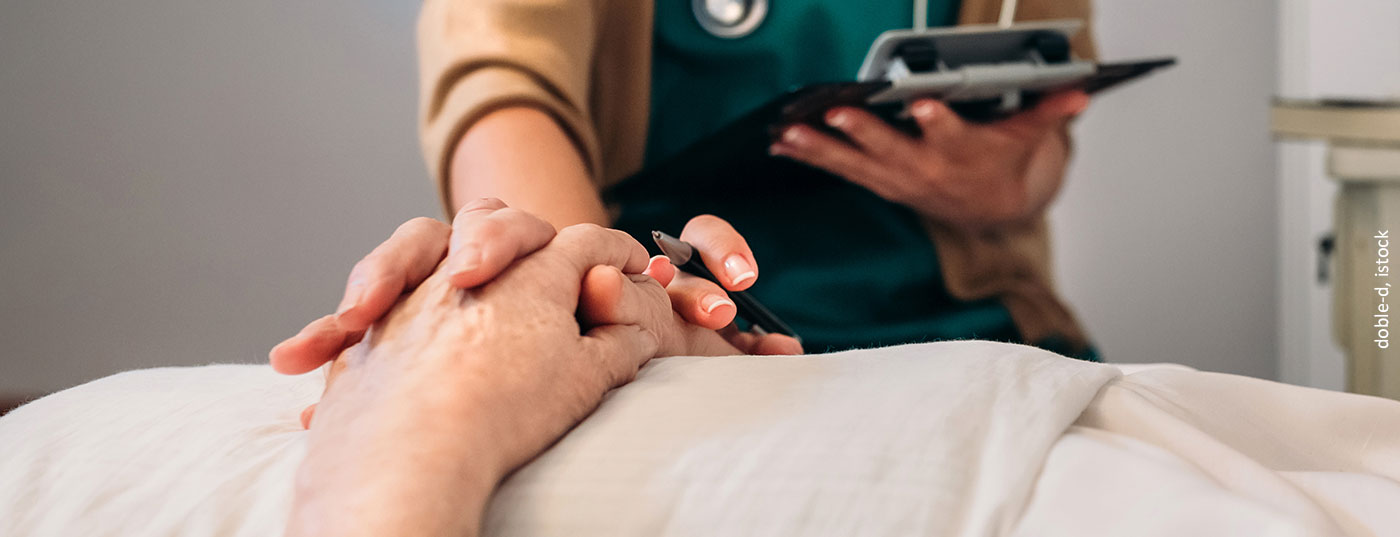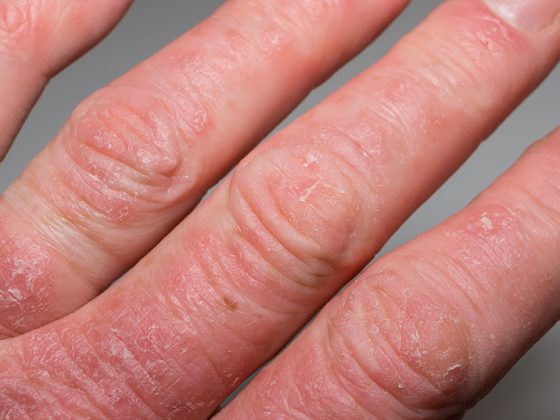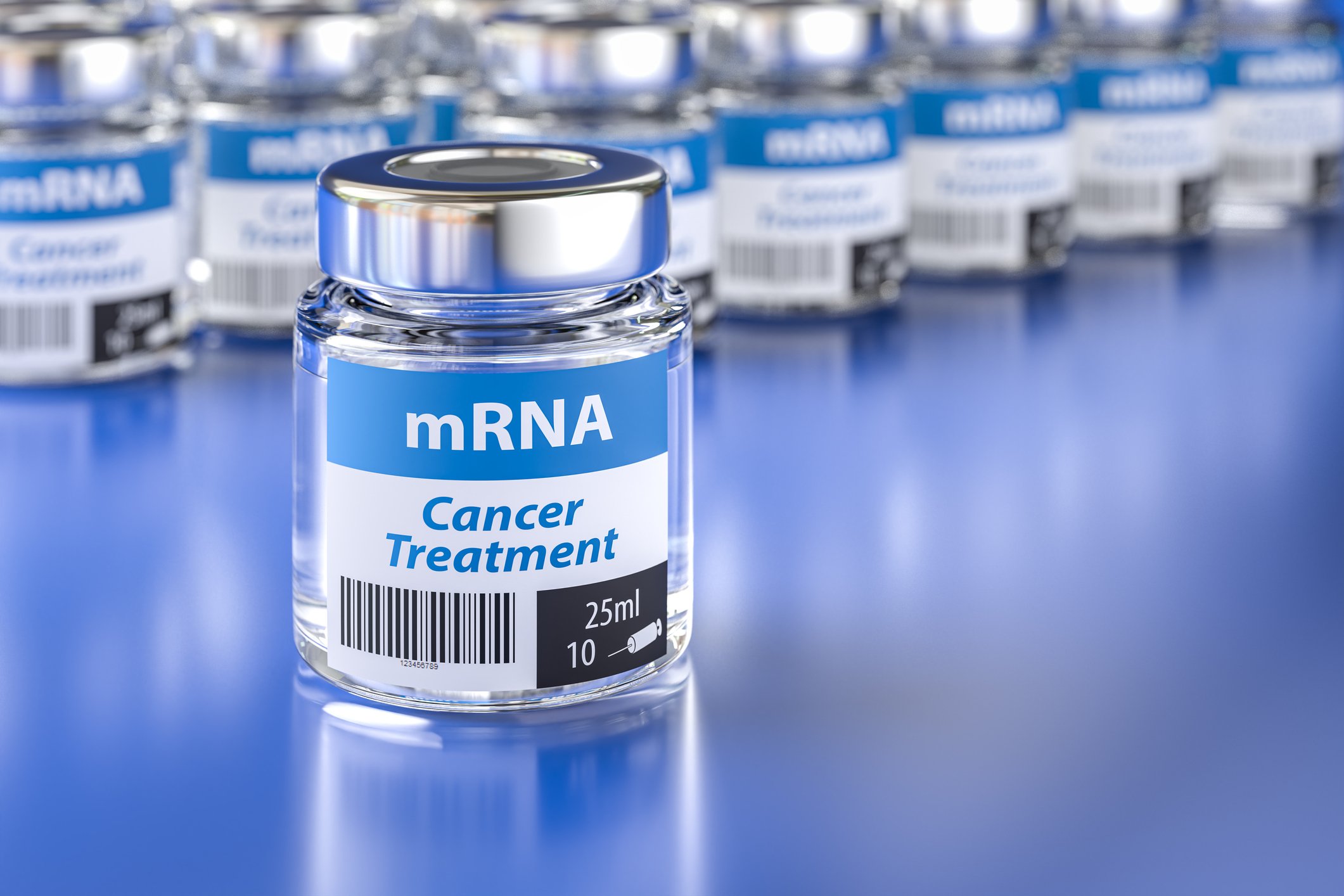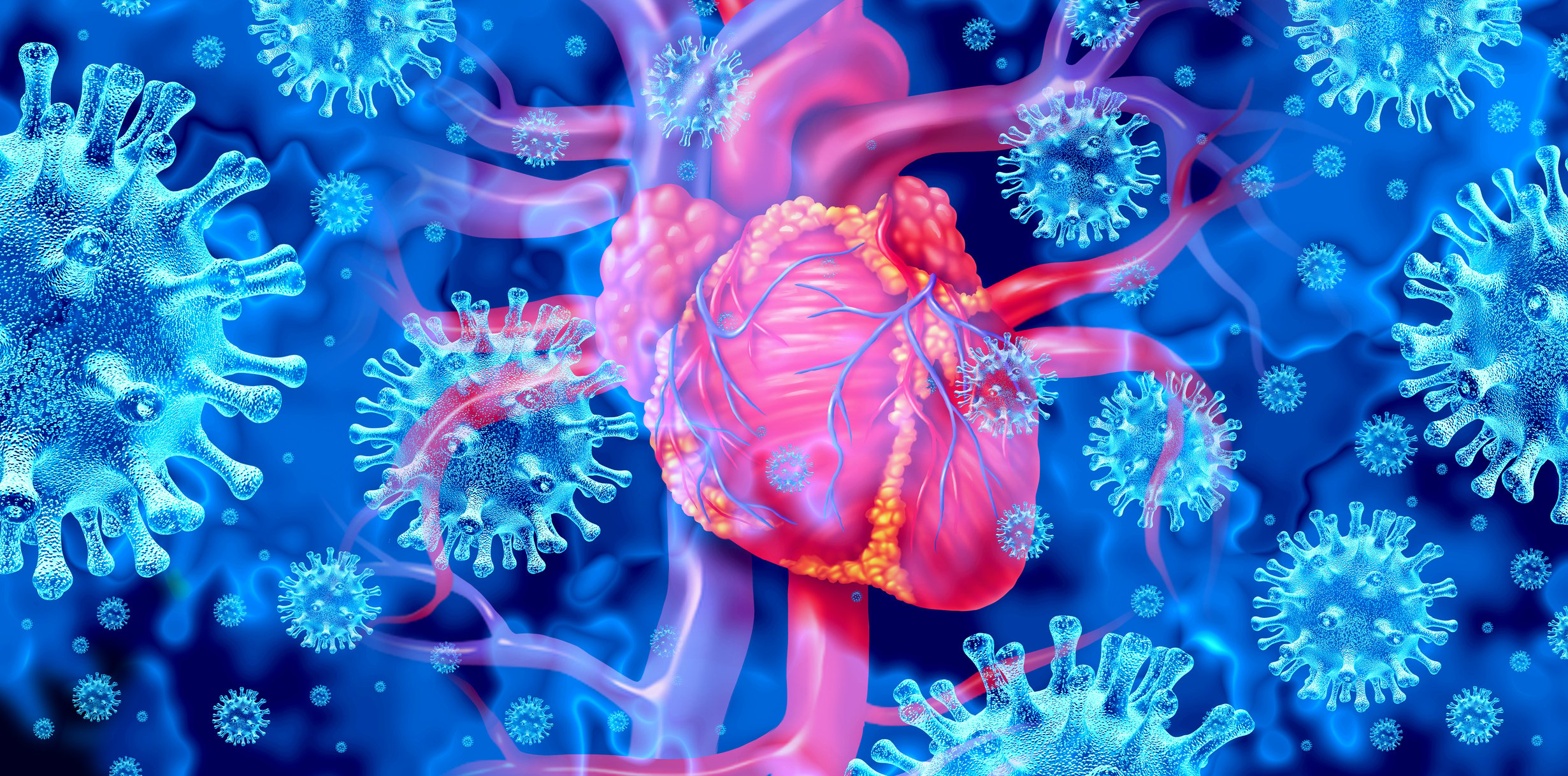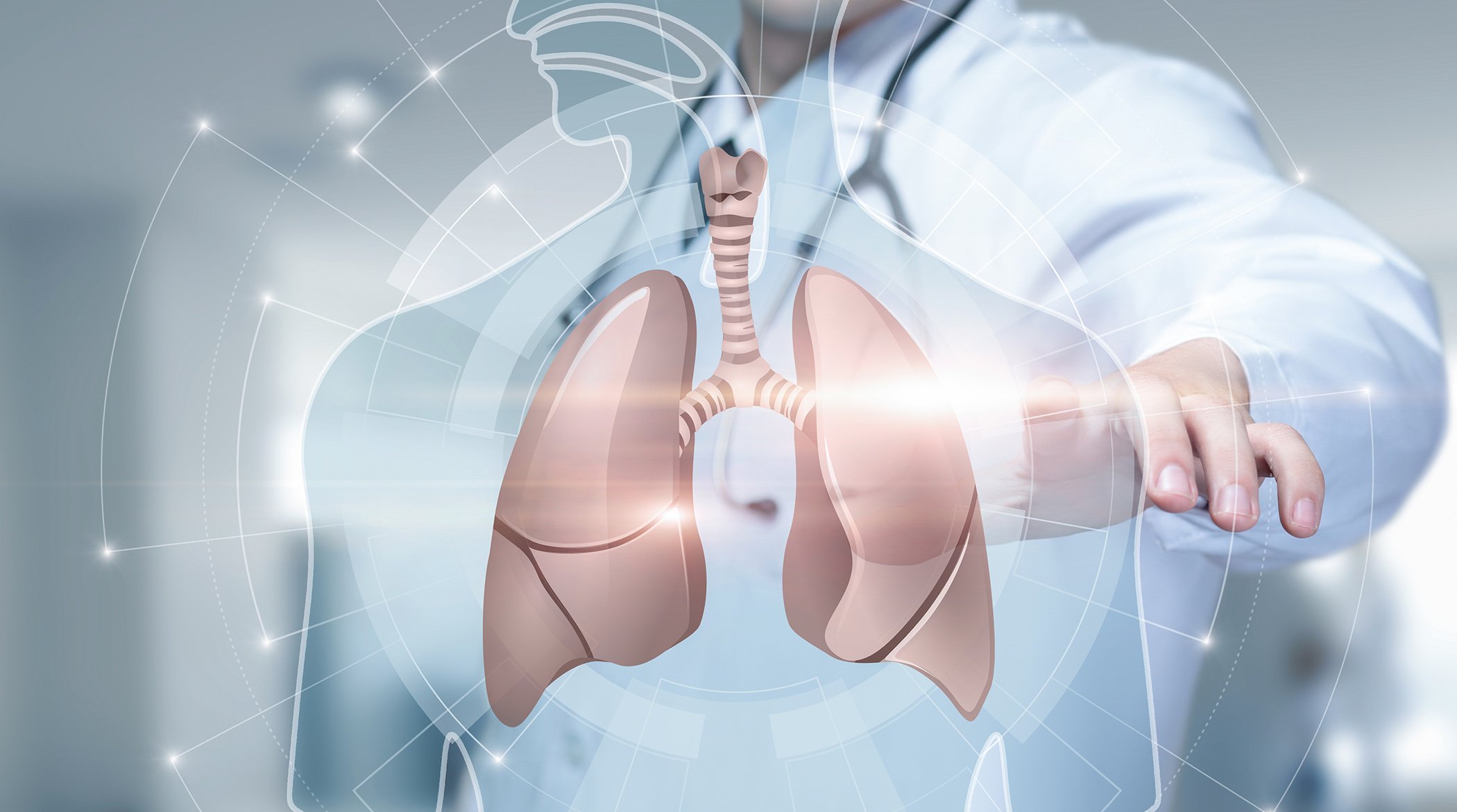Oncology is a discipline in which dying and death are omnipresent. Thus, assisted suicide is also a common – and controversial – topic in daily oncology practice. While this has been permitted in Switzerland for a long time, our German partners have not yet Neighbors currently some.
The ethically controversial issue of assisted suicide is reflected in widely divergent legislation in different countries. In principle, the aim is to provide a suicidal person with a lethal substance, which he or she ingests on his or her own without outside intervention. On the one hand, self-determination and thus also a possible wish to die should be respected; on the other hand, life should be protected and under no circumstances should the promotion of suicide result from false reasons, such as feelings of social obligation [1]. This tension between ethical principles has led to various legal frameworks over the past decades – and these are in a constant state of flux. Thus, a change in the law in Germany is likely to be imminent. And in Switzerland, too, the FMH’s code of conduct could soon be adapted.
In fast motion: assisted suicide in Germany
Little room for interpretation – at least for physicians – is left by the still frequently cited Oath of Hippocrates. It says there: “I will not give or even advise anyone, even at their request, to take a deadly poison. Nor will I ever give a woman an abortifacient. Sacred and pure I will keep my life and my art.” [2] The attitude that assisting in suicide contradicts the medical ethos persisted in Germany until a few years ago – apparently without much resistance. As recently as 2011, the German Medical Association (Bundesärztekammer) stated, in somewhat softer terms, that assisted suicide was not a medical task. At the time, the corresponding professional code of ethics stated, “Physicians … would not be allowed to assist in suicide.” A sentence that was deleted in May of this year as an expression of a change that has accelerated in recent years. This change has so far culminated in the ruling of the Federal Constitutional Court in February 2020, which classified the ban on the businesslike promotion of suicide and thus on all euthanasia organizations as unconstitutional. It was stated that the general right of personality as an expression of personal autonomy includes a right to self-determined dying – also by suicide. According to the ruling, help may also be sought for this purpose, although no one can be obliged to provide assisted suicide. It is noticeable here that the Federal Constitutional Court does not presuppose any suffering to avail oneself of assisted suicide, the decision is not limited to certain life or illness situations.
And there are also other things that remain unclear for physicians in our neighboring country at the moment. Although assisted suicide is no longer prohibited, prescribing barbiturates for the purpose of suicide is. Legislation is unlikely to be enacted before the end of 2022, further exacerbating the current situation. According to a survey, up to 50% of German oncologists are confronted with the issue of assisted suicide in their practice [3].
Switzerland for comparison
Unlike in Germany, so-called euthanasia organizations such as EXIT and DIGNITAS have existed in Switzerland for 35 years. The Federal Council and Parliament decided in 2011 and 2012, respectively, not to explicitly regulate organized assisted suicide [4]. According to Article 115 of the Criminal Code, assisted suicide is not punishable if it is carried out without selfish motives. This applies to all persons. In addition, the prerequisites for exemption from punishment for assisted suicide are that the person concerned has the capacity to judge and that he or she is the perpetrator, i.e. that he or she carries out the suicide independently. Prescription of sodium phenobarbital with lethal intent is subject to mandatory reporting to cantonal authorities, and assisted suicide is considered an “extraordinary death” [6]. This liberal penal background is also reflected in the FMH code of ethics, with the consensus that euthanasia cannot be satisfactorily regulated without medical expertise [5,6]. For assisted suicide, the SAMS (Swiss Academy of Medical Sciences) guidelines of 2004 require, in addition to the person’s capacity to judge, that the person wishing to die is close to the end of life, that alternative methods of assistance have been discussed and used if desired, and that the wish is well-considered, has arisen without external pressure, and is permanent. The capacity to judge as well as the autonomy, well-being and constancy of the wish to die must be confirmed by two independent persons [6]. Thus, while the possibility of euthanasia is not legally limited to patients at the end of life, the FMH guidelines are more cautious in this regard.
In 2016, 928 deaths of persons residing in Switzerland were registered in which euthanasia was performed. This represented 1.4% of all deaths. Slightly more people-1016 people-died by non-assisted suicide [7]. It is also interesting to note that cancer was reported as the underlying disease in 42% of cases, followed by neurodegenerative diseases (14%) , cardiovascular diseases (11%) and musculoskeletal diseases (10%) [4]. Accordingly, physicians working in oncology are also affected by this important topic to an above-average extent in this country – and it is by no means over. For example, a majority of the Medical Association rejected the new guidelines on assisted suicide adopted by the SAMS in 2018, which resulted in their not being included in the Code of Professional Conduct. The main reason for rejection was the concept of “unbearable suffering,” which many considered too vague and subjective. This – according to the concern – could lead to legal uncertainty as well as increased demand, since people who want to die no longer have to be explicitly at the end of life. In September 2021, a specially formed working group therefore adopted a revised subchapter on assisted suicide for the SAMS guidelines. This is currently being presented to the SAMS Senate before it is to be submitted to the Medical Association in spring 2022. The aim is to integrate it into the professional code of conduct [8].
The doctor as angel of death?
While the legal frameworks in Germany and Switzerland currently still differ significantly, one principle applies everywhere: no one can be obliged to assist suicide – not even a doctor. Thus, each medical professional must decide for himself or herself how he or she wishes to deal with the issue of death wishes. Closing one’s eyes to this difficult issue is not a solution – the experts at the annual conference agreed on that. Regardless of the personal attitude of the practitioner, they considered a conversation about the issue to be an important first step. And in any case as a medical task. It is also the physician’s responsibility to point out alternatives such as palliative and/or psychotherapeutic services. The extent to which further care is provided, on the other hand, is up to each practitioner. This is much more an individual decision of conscience than a professional task – a decision of conscience that may well change over time or vary between different patients.
Source: Scientific Symposium “Physician-Assisted Suicide” chaired by Christian Junghanß and Ulrich Schuler, Oct. 01, 2021, Annual Meeting of the German, Austrian, and Swiss Societies for æmatology and Medical Oncology, Berlin (D).
Literature:
- Schildmann J, Vollmann J: Physician assisted suicide — ethical, legal and clinical aspects. Dtsch Med Wochenschr. 2006; 131(24): 1405-1408.
- Translation of Müri W: Der Arzt im Altertum. Greek and Latin source pieces from Hippocrates to Galen. Artemis & Winkler, Munich/Zurich; 6th edition, 2001.
- Schildmann J: Lecture “Assisted suicide in oncology. Results of an empirical study.” in the context of the annual meeting of the DGHO, OeGHO, SSMO and SGH/SSH. 01.10.2021. Berlin.
- Junker C: Cause of death statistics: assisted suicide (euthanasia) and suicide in Switzerland. Federal Statistical Office (FSO); 2016.
- FMH: Appendix 1 to the FMH Code of Professional Conduct. www.fmh.ch/files/pdf7/anhang-1-standesordnung-fmh.pdf (last accessed Nov. 08, 2021).
- SAMS/FMH: Legal principles in everyday medical practice – a guide for practitioners. 2008.
- FOPH: Assisted Suicides. www.bag.admin.ch/bag/de/home/strategie-und-politik/politische-auftraege-und-aktionsplaene/aktionsplan-suizidpraevention/suizide-und-suizidversuche/assistierte-suizide.html (last accessed 11/03/2021).
- Gilli Y, Bounameaux H: FMH and SAMS revise the guidelines “Dealing with dying and death” – Physicians and assisted suicide. SAZ 2021; 102(44): 1436-1437.
InFo ONCOLOGY & HEMATOLOGY 2021; 9(6): 37-38.

